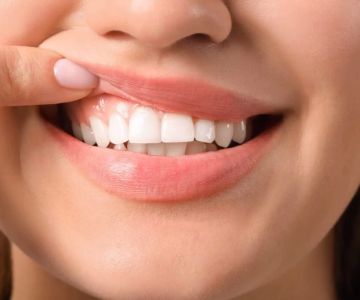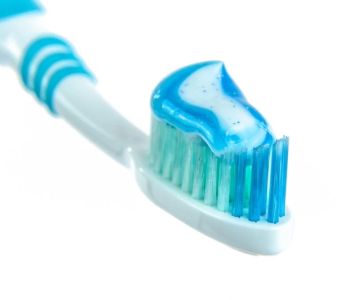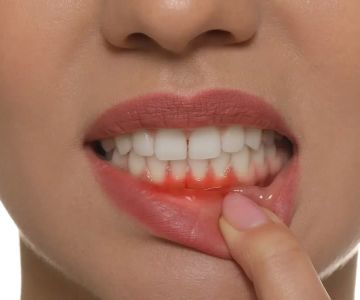Understanding Gum Tenderness
When you think about maintaining oral health, you might often focus on your teeth, but your gums are equally important.
Gum tenderness is a common yet significant issue that many Americans face.
It can herald the onset of more severe dental problems if left unchecked.
The prevalence of gum-related issues in the United States cannot be ignored—according to the Center for Disease Control and Prevention (CDC), nearly half of American adults aged 30 and older have some form of gum disease.
This article provides in-depth insights into gum tenderness, its causes, symptoms, prevention strategies, and when to seek professional help.
What Causes Gum Tenderness?
Gum tenderness can be attributed to several factors, ranging from poor oral hygiene to underlying medical conditions.
Firstly, inadequate brushing and flossing can lead to plaque build-up, causing irritation and inflammation in the gum tissue.
Recognizing Symptoms of Gum Tenderness
Recognizing the early symptoms of gum tenderness is crucial for effective treatment. The initial signs may include redness, swelling, or bleeding during brushing or flossing.
As the condition progresses, more severe symptoms such as persistent bad breath, receding gums, or even loose teeth may occur.
Visit our Gum Problems section for a comprehensive list of symptoms and prevention tips.Preventative Measures for Gum Tenderness
Regular dental hygiene is the cornerstone of preventing gum tenderness. This includes brushing at least twice a day and flossing daily.
Using mouthwash can further help in keeping the gums healthy by eliminating bacteria that cause gum disease.
Treatment Options for Gum Tenderness
If gum tenderness occurs, several treatment options are available. Non-surgical treatments include scaling and root planing to remove plaque and tartar from below the gum line.
In more advanced cases, surgical interventions might be necessary, such as flap surgery or bone grafts.
Over-the-counter pain relief medication can also be used in conjunction with these treatments to manage discomfort.
When to Seek Professional Help
It's important to consult a dental professional if gum tenderness persists despite good oral hygiene practices.
Early intervention can prevent more serious complications such as periodontitis or tooth loss.
Dentistry Toothtruth provides expert advice and treatment plansConclusion: Maintaining Healthy Gums
Maintaining healthy gums is vital for overall oral health and well-being. By understanding the causes and symptoms of gum tenderness, individuals can take proactive steps to prevent and manage this condition.
Consistent dental care practices, a balanced diet, and regular consultations with dental professionals are key to avoiding complications.
For those experiencing persistent gum tenderness, professional evaluation is paramount to ensure comprehensive care. Explore more resources and expert guidance at Dentistry Toothtruth.







 Dr. Jeffrey C. Liu and Dr. Shaun Dadjoo - Porter Ranch Orthodontists5.0 (57 review)
Dr. Jeffrey C. Liu and Dr. Shaun Dadjoo - Porter Ranch Orthodontists5.0 (57 review) Tend East Nashville4.0 (319 review)
Tend East Nashville4.0 (319 review) Dental Bright advanced family dentistry & orthodontics4.0 (69 review)
Dental Bright advanced family dentistry & orthodontics4.0 (69 review) George Orthodontics4.0 (55 review)
George Orthodontics4.0 (55 review) Mattschei Marcelo W DDS1.0 (1 review)
Mattschei Marcelo W DDS1.0 (1 review) Dr. Matt Orthodontics (Formerly known as Walker Orthodontics)5.0 (164 review)
Dr. Matt Orthodontics (Formerly known as Walker Orthodontics)5.0 (164 review) The Importance of Oral Health Education During Pregnancy for a Healthy Pregnancy
The Importance of Oral Health Education During Pregnancy for a Healthy Pregnancy Best Tips for Brushing Your Teeth Properly for Healthy Gums: Essential Techniques for Oral Health
Best Tips for Brushing Your Teeth Properly for Healthy Gums: Essential Techniques for Oral Health Why Skipping Dental Checkups Can Lead to Bigger Oral Health Problems
Why Skipping Dental Checkups Can Lead to Bigger Oral Health Problems Advantages of Porcelain Dental Restorations
Advantages of Porcelain Dental Restorations How Can Diabetes Cause Tooth and Gum Problems? Preventing and Managing Oral Health Issues
How Can Diabetes Cause Tooth and Gum Problems? Preventing and Managing Oral Health Issues Healthy Habits for Promoting Good Oral Health and Hygiene: Tips for a Healthy Smile
Healthy Habits for Promoting Good Oral Health and Hygiene: Tips for a Healthy Smile